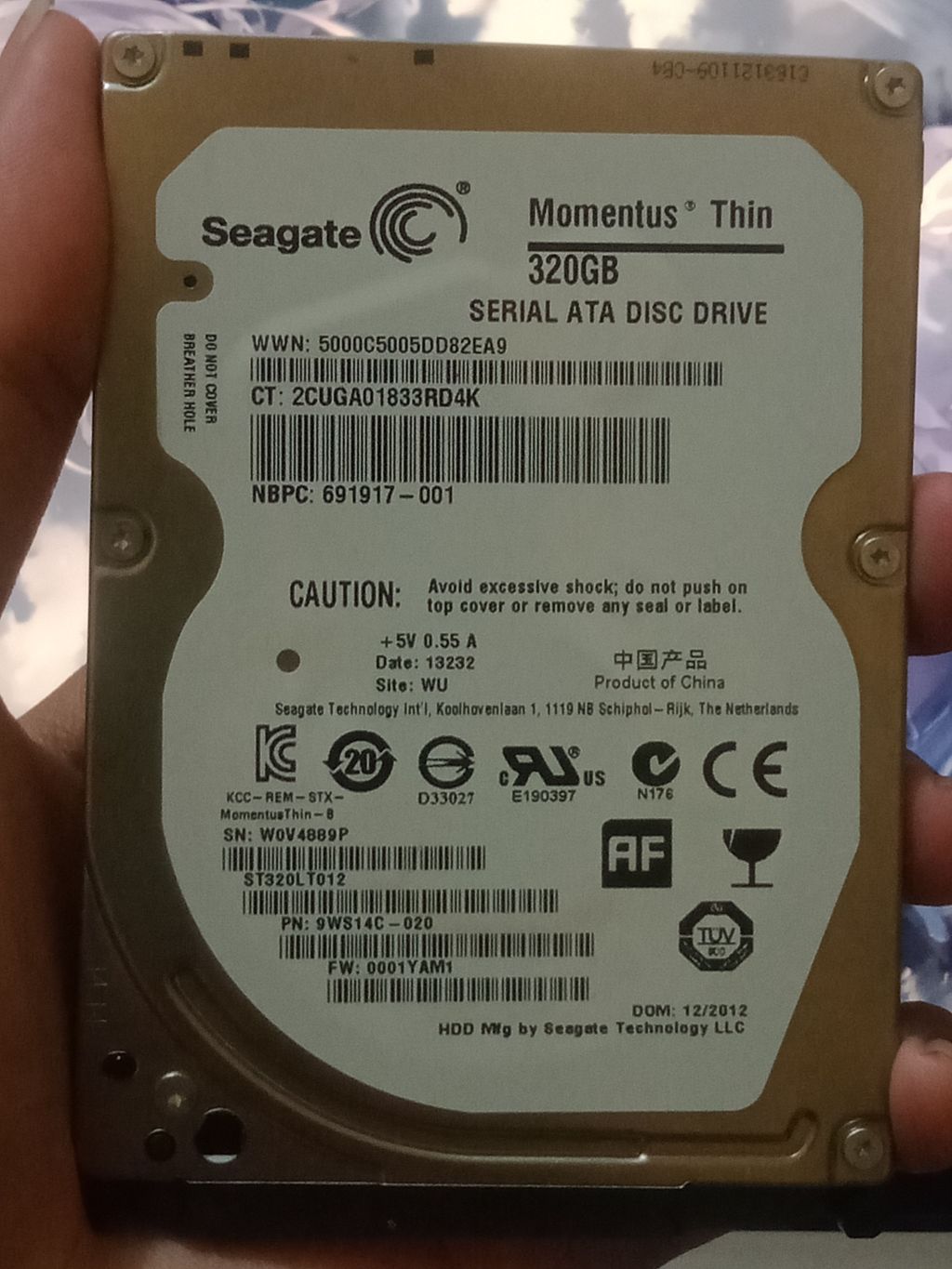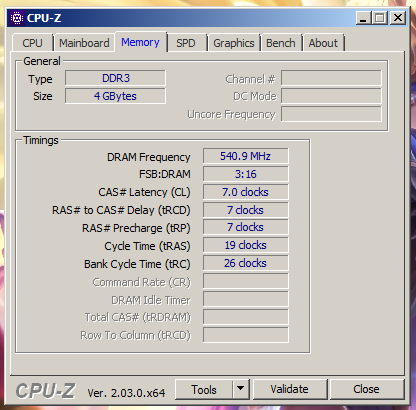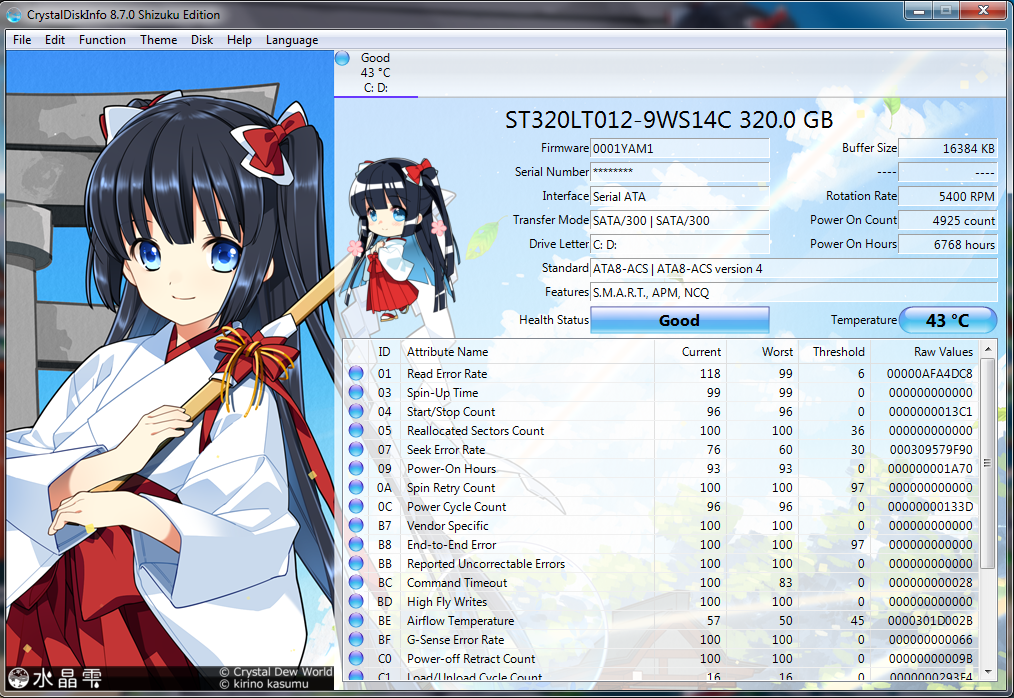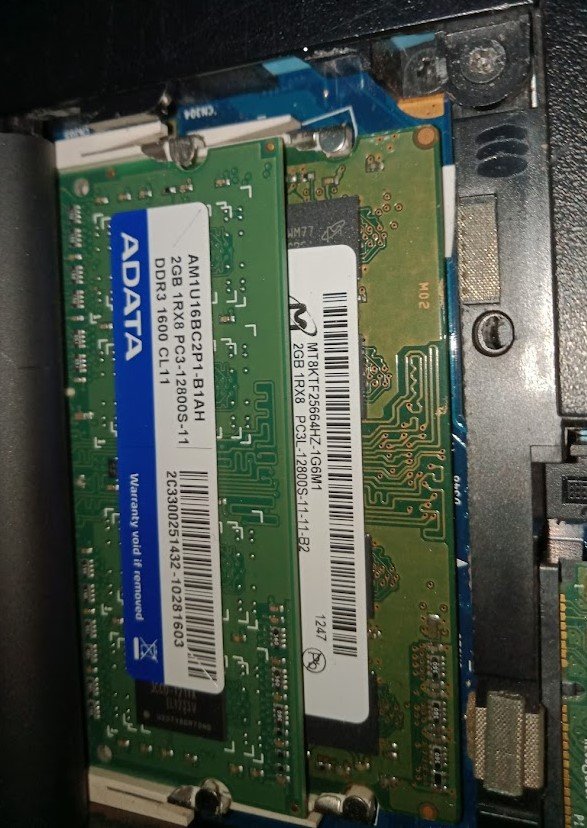Comparing: Seagate Momentus Thin ST320LT012-9WS14C vs DDR3 SODIMM 1066MHz [Disk]
In this comparison, we analyze two Disks: Seagate Momentus Thin ST320LT012-9WS14C and DDR3 SODIMM 1066MHz [Disk], using synthetic benchmark tests to evaluate their overall performance. This side-by-side comparison helps users understand which hardware delivers better value, speed, and efficiency based on standardized testing. Whether you're building a new system or upgrading an existing one, this benchmark-driven evaluation offers valuable insights to guide your decision.

Seagate Momentus Thin ST320LT012-9WS14C
| Type: | Disks |
|---|---|
| Model: | Seagate ST320LT012-9WS14C |
| Capacity: | 320 GB |
| Interface: | SATA-II 3Gbps |

DDR3 SODIMM 1066MHz [Disk]
| Type: | Disks |
|---|---|
| Model: | DDR3 SODIMM 1066MHz [Disk] |
| Capacity: | 2GB |
| Interface: | DDR3 |
Specification Comparison Table
This specification comparison presents technical details of several devices or components to help you understand the key differences between each option. Use this table as a reference to determine which device best suits your needs.
| Specification | Seagate Momentus Thin ST320LT012-9WS14C | DDR3 SODIMM 1066MHz [Disk] |
|---|---|---|
| Brand | Seagate | - |
| Format | HDD 2.5 | RAM Disk |
| Capacity | 320 GB | 2GB |
| Interface | SATA-II 3Gbps | DDR3 |
Submission Comparison Table
This submission comparison table displays the number and details of benchmark data submissions from various devices or components. This information helps you understand the performance based on the benchmarks that have been tested, as well as providing an overview of the consistency and popularity of the available benchmark results.
| No. | Benchmark Software | Seagate Momentus Thin ST320LT012-9WS14C | DDR3 SODIMM 1066MHz [Disk] |
|---|---|---|---|
| 1 | ATTO Disk Benchmark - 64M |
Read: 51.51 MB/s Write: 50.44 MB/s |
Read: 1020.00 MB/s Write: 1080.00 MB/s |
| 2 | Cross Platform Disk Test |
Read: 59.23 MB/s Write: 42.67 MB/s |
Read: 658.01 MB/s Write: 265.28 MB/s |
| 3 | CrystalDiskMark |
Read: 84.67 MB/s Write: 83.84 MB/s |
Read: 746.24 MB/s Write: 828.18 MB/s |
Submission Comparison Chart
This chart visualizes the benchmark scores comparison between two hardware devices based on submitted data.
Media Gallery
A collection of photos of tested hardware. These images can help you identify the physical form, model, and variant of the hardware in question. These photos are from our own documentation, and if they are not available we may not be able to document them.
About Hardware Seagate Momentus Thin ST320LT012-9WS14C
Seagate ST320LT012-9WS14C is a 320GB capacity hard disk drive (HDD) with a slim 2.5-inch form factor, ideal for laptops, notebooks and other portable systems. Designed using a SATA II (3Gbps) interface and a rotation speed of 5400 RPM, this HDD emphasizes power efficiency and quieter operation compared to higher-speed HDDs.
It uses 1 platter and 2 read/write heads, a common configuration for 320GB capacity, with light weight and low power consumption-suitable for mobile devices. Equipped with 16MB of buffer cache, its performance is sufficient for daily tasks such as saving documents, running light applications, or storing multimedia files.
This Seagate ST320LT012-9WS14C performance test was conducted using an HP 1000 1b05AU laptop that still relies on 4GB DDR3 Single Channel RAM with two DIMM slots. The operating system used during the test was Windows 7 64-bit, which is a typical environment for entry-level laptops in this era of HDD usage. The hardware combination reflects the real usage scenarios of older generation laptop users who still rely on mechanical hard disks as the primary storage medium.
In tests using CrystalDiskMark benchmark software, the Seagate ST320LT012-9WS14C hard disk recorded a fairly stable performance for the 5400 RPM HDD class. The sequential read speed reached 84.67 MB/s, while the sequential write speed stood at 83.84 MB/s. These results show that despite being an older generation HDD with modest specifications, its performance is still adequate for everyday light computing needs such as document storage and media playback.
Although its performance falls short of modern SSDs, the Seagate ST320LT012-9WS14C remains a reliable and cost-effective choice for users who need additional internal storage on older laptops, educational systems, or as external media (with a USB case). Its compact size and low power consumption also make it suitable for use in netbooks and other energy-efficient devices.
Device Test:
Device: HP 1000 1b05au
RAM: 4GB DDR3 Single Channel 2 DIMM
OS: Windows 7
Wednesday, 26 December 2012 14:27:32 | Update: 3 weeks ago
About Hardware DDR3 SODIMM 1066MHz [Disk]
DDR3 SODIMM 1066MHz is a third-generation memory module with a speed of 1066MHz that is commonly used in laptops and small devices. With the SODIMM form factor, these modules are often the standard choice for mobile computing systems, serving as the main memory for running operating systems, applications, and light to medium multitasking processes.
However, in this particular experiment, two 1066MHz DDR3 SODIMM modules from Micron and ADATA (2GB capacity each) were uniquely configured as a RAMDisk, a temporary storage space that uses RAM capacity to simulate a storage drive with much higher access speeds than SSDs or HDDs.
The 1066MHz DDR3 SODIMM-based RAMDisk test was conducted on an HP 1000 1b05au laptop device, powered by an AMD E1-1200 processor. The system is equipped with a 2x2GB DDR3 SODIMM 1600MHz RAM configuration, but due to processor architecture limitations, the memory only runs in single channel mode with an effective speed of 1066MHz. The operating system used is Windows 7, and to create and manage the RAMDisk, two popular applications, SoftPerfect RAMDisk and ImDisk Virtual Disk Driver, were used. The configured RAMDisk size was 2GB, utilizing some of the available RAM capacity.
Even though the device specifications are old and have limited memory bandwidth, the RAMDisk configured in this system was still able to show excellent performance in the read and write speed benchmarks. Based on tests using CrystalDiskMark, the read speed reached 746.24 MB/s, while the write speed touched 828.18 MB/s. In a follow-up test using ATTO Disk Benchmark with a 64MB block size, the read speed increased to 1020.00 MB/s, and the write speed reached 1080.00 MB/s. These results prove that even on older systems, RAMDisk configurations are still capable of delivering very high I/O performance, far surpassing conventional storage such as HDDs or even some SSDs.
Analysis
The results show that a 1066MHz DDR3-based RAMDisk is still capable of delivering data transfer speeds on par with entry-level NVMe SSDs, even outperforming many SATA SSDs and leaving conventional HDDs far behind. This makes RAMDisks an ideal solution for temporary use such as:
- Application caching,
- Temporary file storage,
- Fast computing with high I/O,
- Software or script testing without the risk of contaminating the main file system.
Although limited to a small capacity (2GB in this test), RAMDisk is still very useful for specific needs, especially for users with more than enough RAM or older devices that want to maximize their performance.
Test on:
Device: HP 1000 1b05au
Specs:
CPU: AMD E1-1200
OS: Windows 7
RAM: 2x2GB Single Channel 2 DIMM 1066MHz (Does not support dual channel due to limitations of the CPU, currently running single channel mode and 1066MHz)
Wednesday, 26 December 2012 14:27:32 | Update: 2 weeks ago



